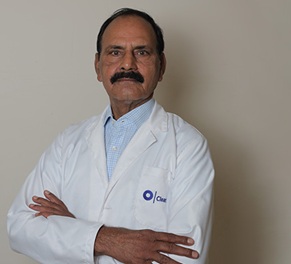What Diseases can be Detected by a Colonoscopy?

Quick Summary
- Colonoscopy is a valuable method that helps visualise the insides of the large intestine- a part of your gut.
- A colonoscopy helps detect several diseases by allowing the doctor to have a direct look at any abnormalities in the large intestine. Colorectal cancer, Crohn’s diseases, and colon polyps are some diseases detected by colonoscopy.
- Colonoscopy is a safe and effective procedure that can help detect several diseases.
With the advent of the latest technology, almost every medical condition gets diagnosed right on time and helps save a patient’s precious life! One such method of diagnosis is colonoscopy. Colonoscopy is a valuable method that helps visualise the insides of the large intestine- a part of your gut.
A colonoscopy helps detect several diseases by allowing the doctor to have a direct look at any abnormalities in the large intestine. Colorectal cancer, Crohn’s diseases, and colon polyps are some diseases detected by colonoscopy. Despite that, what can a colonoscopy detect – isn’t limited to these diseases.
Read the full article to learn what diseases can be detected by a colonoscopy.
What is a Colonoscopy?
A colonoscopy is a medical screening test through which doctors check the rectum and colon of the patient. During the test, the doctors put a colonoscope, a flexible tube attached to a tiny camera, inside the colon through the anal passageway. This helps detect any abnormalities inside the rectum or colon. Abnormal growths, such as polyps, are easily removable by the colonoscope.
Colonoscopy is one of the accurate screening tests for colorectal cancer, along with a list of other diseases detected by colonoscopy. The colonoscopy screening has an accuracy rate of 94%. Read the remaining article to discover what diseases can be detected by a colonoscopy and who should get it.


Who should get a Colonoscopy test?
There are several diseases detected by colonoscopy. One should get a colonoscopy test if they have/are:
- 50 years or above
- Family history of colon cancer or polyps
- Personal history of colon polyps or colon cancer
- Symptoms such as rectal bleeding, changes in bowel habits, abdominal pain or unexplained weight loss.
- History of inflammatory bowel disease (IBD), such as Crohn's disease or ulcerative colitis
What diseases can be detected by a Colonoscopy?
A colonoscopy is typically performed as a diagnostic test to evaluate symptoms such as rectal bleeding, abdominal pain, and changes in bowel habits, and it also is used as a screening test to detect colon cancer or precancerous polyps. It's considered as one of the most effective screening tests for colon cancer. Below is the detailed list of diseases detected by colonoscopy:
Crohn’s Disease
Crohn’s disease is one of the many diseases detected by colonoscopy. It is a medical condition that results in inflammation in the digestive tract. The disease can develop anywhere between the mouth to the anus. Generally, women are more likely to develop Crohn’s disease than men. However, it can affect any gender, especially those aged 16-30. There’s no permanent cure for Crohn’s disease. But treatments can help reduce symptoms in patients.
A few symptoms of Crohn's disease include:
- Abdominal pain
- Fatigue
- Diarrhoea
- Blood and mucus in urine
- Weight loss
If not treated on time, Crohn’s disease can cause complications like stricture (a condition that causes narrowing of the intestine), fistula, anal fissures, and osteoporosis. Hence, seeking medical advice is necessary when one feels any symptoms of Crohn’s disease.
Colon Polyps
Colon polyps is an ailment in which clusters of cells grow along the lining of the large intestine. People aged 50 or above are more likely to develop colon polyps. Apart from that, people who smoke are obese, and those with a family history of colon polyps are also at risk of cultivating the disease.
The disease is asymptomatic. However, some patients can experience the following symptoms:
- Changes in the urine colour
- Diarrhoea
- Constipation
- Rectal bleeding
- Iron deficit
Most colon polyps are benign. But a few of them may turn cancerous. Thereupon, early diagnosis of colon polyps is crucial. Colon polyps can be detected and removed during a colonoscopy.
Diverticulitis
Diverticulitis is a condition in which bulging pouches grow along the border of the large intestine, especially in the lower area, i.e., the colon. Diverticula, as such, don’t pose any problems; however, sometimes, the pouches may become infected and inflamed. In such cases, diverticula are referred to as diverticulitis.
These are the following symptoms of diverticulitis:
- Rectal bleeding
- Stomach pain
- Blood/ mucus in stools
- Diarrhoea
- Constipation
If not treated timely, diverticulitis can cause further serious illnesses, such as intestinal obstruction, fistula, and abscess. Therefore, one must undergo diagnostic tests, like a colonoscopy, to detect the disease at the earliest.
Ulcerative Colitis
Ulcerative colitis is a long-term medical condition in which the lining of the large intestine becomes inflamed. The disease is considered an auto-immune disease. The most common symptoms of ulcerative colitis are:
- Frequent urination
- Recurring diarrhoea
- Stomach pain
If left untreated, ulcerative colitis may cause complications, such as swollen colon (toxic megacolon), bowel cancer, and osteoporosis. Hence, early diagnosis of the disease is mandatory to prevent complications. Ulcerative colitis is among the diseases detected by colonoscopy.
Haemorrhoids
- Also known as piles, haemorrhoids are a health issue which causes lumps inside and around the anus. One also experiences itchiness at the bottom. Piles are nothing but swollen blood vessels. Usually, piles go away within a few days. However, if the condition persists for a long time, the doctor may suggest a colonoscopy screening to eliminate the cause.
- A colonoscopy isn't usually suggested for identifying or treating haemorrhoids because they can be found with a visual or physical exam. However, if you get a colonoscopy for another reason, you may discover that you have internal haemorrhoids that you were previously unaware of.
- Additionally, if you know you have haemorrhoids but are suffering symptoms such as heavy or persistent rectal bleeding, your doctor may prescribe a colonoscopy to rule out other possible reasons.
Chronic Constipation
When bowel movements occur less than three times a week, it is called constipation. A few of the most common symptoms of constipation are:
- Discomfort/ pain while excreting.
- Large, dry and hard poop
- Less than three poops in a week
If constipation does not disappear even after taking medicines, it could be a sign of something more serious. Therefore, doctors can ask the patient to have a colonoscopy screening to detect any underlying illness.
Colorectal Cancer
Colorectal cancer is the uncontrolled growth of the cells of the rectal and colon. Generally, colorectal cancer develops in people who are sixty or above.
The common symptoms of colorectal cancer include:
- Bloating
- Abdominal pain
- Bloody urination
A colonoscopy provides a proper view of the colon and rectal area. Hence, colorectal cancer is classified among the diseases detected by colonoscopy.
Irritable Bowel Syndrome
Irritable Bowel Syndrome (IBS) is a chronic long-term medical problem which causes stomach and intestinal problems. For example, pain, bloating, diarrhoea, and flatulence. Irritable Bowel Syndrome is manageable if one strives for a healthy lifestyle and balanced diet.
Fortunately, IBS does not cause colorectal cancer. Despite that, a colonoscopy test is advised for patients to exclude other diseases.
When do you know what diseases can be detected by a colonoscopy?
If you have any of the following symptoms, you should consult your doctor about having a colonoscopy:
- Constipation
- Recurrent Diarrhoea
- Blood in the stool
- Bleeding in the rectum
- Pain or cramping in the abdomen
- Unintentional weight loss
- Tiredness
- Dark stools
Takeaway
There is a wide range of diseases detected by colonoscopy. For instance, Crohn’s disease diverticulitis, ulcerative colitis and so on. Undergoing a colonoscopy test on time can save you from life-threatening diseases like colorectal cancer. That being said, you must never ignore the symptoms of bowel diseases.
If you are fifty or above, notice any changes in your bowel movements, or have a family history of bowel diseases, you must undergo a colonoscopy test to rule out severe illnesses at the earliest. Consider taking an appointment with a healthcare provider. You can also contact us at HexaHealth to get a colonoscopy appointment. The consultation call is absolutely free. Register today.
Frequently Asked Questions
What diseases can be detected by a colonoscopy?
These are the following diseases detected by colonoscopy:
- Colorectal cancer
- Colon polyps
- Diverticulitis
- Ulcerative colitis
- Haemorrhoids
- Irritable bowel syndrome
- Constipation
- Crohn’s disease
What is Colonoscopy?
What are the most common findings of a colonoscopy?
The most common finding of a colonoscopy is colorectal cancer. It is cancer of the colon and rectal. Apart from that, Crohn’s disease, colon polyps, ulcerative colitis, haemorrhoids, and diverticulitis are other diseases detected by colonoscopy.
What symptoms indicate a need for a colonoscopy?
The symptoms that indicate a need for a colonoscopy are Changes in the bowel, Recurring diarrhoea, Tummy pain, Blood in stools and Rectal bleeding. If you’re 50 (or above) or have a family history of bowel disease, you must also undergo a colonoscopy.
How do I prepare for Colonoscopy?
This is how you can prepare for a colonoscopy:
- Start eating foods low in fibre a week before the colonoscopy.
- Avoid whole grains, raw veggies, popcorn, etc.
- Take a liquid-only diet an entire day before the colonoscopy.
- Clean your colon with laxatives a night before the colonoscopy.
- Wait to drink liquid, including water, two hours before the screening.
How much time does it takes to get a colonoscopy results?
It takes around 2 to 3 weeks to get the colonoscopy results. However, the time varies according to the hospitals. It would be best if you talked to your doctor to learn more about your colonoscopy results.
What may happen if something is found in a colonoscopy?
If something is found in a colonoscopy, your doctor will further examine it. A doctor will conclude only after the test reports. If there’s something abnormal in the reports, your doctor will prescribe you medicines or surgery.
Last Updated on: 10 January 2023
Reviewer

Dr. Hemant Kumar Khowal
MBBS, MS General Surgery, Fellowship in Minimal Access Surgery
14 Years Experience
Dr Hemant Kumar Khowal is a well-known General Surgeon and a proctologist. He has 14 years of experience in general surgery and worked as an expert general surgeon in different cities in India. He has worked in many reputed hospital...View More
Author

An enthusiastic writer with an eye for details and medical correctness. An avid reviewer and publisher. She emphasises authentic information and creates value for the readers. Earlier, she was involved in making ...View More
Expert Doctors (10)
NABH Accredited Hospitals (5)
Latest Health Articles
Related Treatments



















 Open In App
Open In App